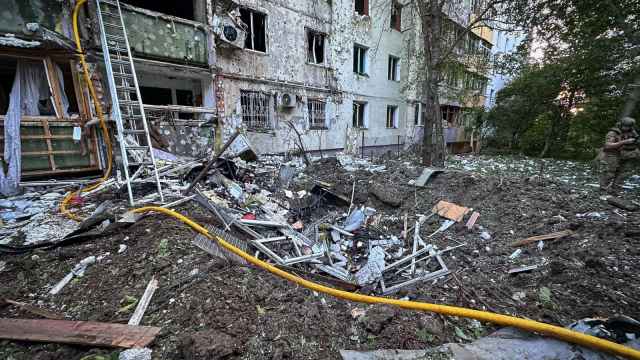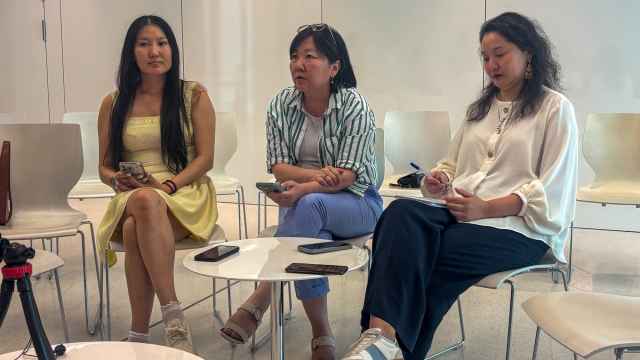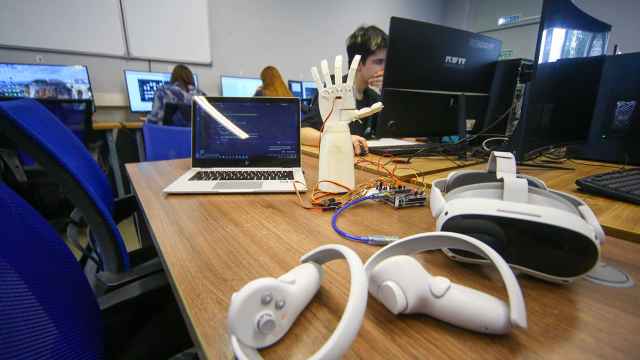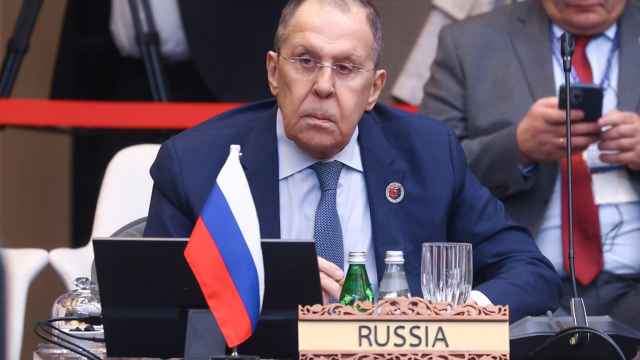The Kremlin will this year hand out 1 billion rubles ($350 million) to nongovernmental organizations through six NGOs that critics say have too close ties to the state.
Five of the six organizations have distributed government grant money in the past, according to a decree signed by President Dmitry Medvedev last week. The decree was not published on the Kremlin's web site but can be found in its online data bank.
This year's biggest recipient-distributor is the "State Club – Foundation for a Personnel Reserve," which will oversee the distribution of 280 million rubles.
Headed by prominent United Russia lawmakers like Federation Council Senator Mikhail Margelov, the foundation says on its web site that it aims to form a "patriotic-orientated political class."
The second-largest grant distributor, with 240 million rubles, is the National Welfare Fund. Set up in 1999 on the initiative of then-Prime Minister Vladimir Putin, the organization coordinates aid for armed forces personnel, according to its web site.
The newcomer to this year's list is the National Health League, which will receive 100 million rubles. The league is headed by Leo Bokeria, a heart surgeon with close ties to the government.
Experts criticized the method of distributing state aid for NGO grants through a small group of so-called operators, all based in Moscow and seemingly close to the Kremlin.
"There is a flavor of nontransparency because it was never explained why those organizations were chosen. Why can't we have a tender for choosing them?" said Yelena Panfilova, head of Transparency International's Moscow office.
Critics also questioned the inclusion again of Resistance, an organization that supports victims and witnesses of crime and this year will receive 160 million rubles. Its leader, Olga Kostina, is married to Konstantin Kostin, a deputy head of the Kremlin's domestic policy department.
Reached by telephone Wednesday, Kostina refused to say how the NGOs are chosen. "You must ask the Kremlin," she said.
A Kremlin spokeswoman said she could not immediately comment and asked to be called back Thursday.
Another concern has been that the lion's share of the grant money goes to projects in and around Moscow.
A study conducted by Regions, a Siberian coalition of NGOs, found that almost 60 percent of last year's funds — which also totaled 1 billion rubles — went to NGOs in Moscow and only a third went to organizations located outside the Central Federal District.
"The key for us is raising the issue of decentralizing the competition," said Sarah Lindemann-Komarova, head of the Siberian Civic Initiatives Support Center, a Novosibirsk-based NGO.
A Message from The Moscow Times:
Dear readers,
We are facing unprecedented challenges. Russia's Prosecutor General's Office has designated The Moscow Times as an "undesirable" organization, criminalizing our work and putting our staff at risk of prosecution. This follows our earlier unjust labeling as a "foreign agent."
These actions are direct attempts to silence independent journalism in Russia. The authorities claim our work "discredits the decisions of the Russian leadership." We see things differently: we strive to provide accurate, unbiased reporting on Russia.
We, the journalists of The Moscow Times, refuse to be silenced. But to continue our work, we need your help.
Your support, no matter how small, makes a world of difference. If you can, please support us monthly starting from just $2. It's quick to set up, and every contribution makes a significant impact.
By supporting The Moscow Times, you're defending open, independent journalism in the face of repression. Thank you for standing with us.
Remind me later.






